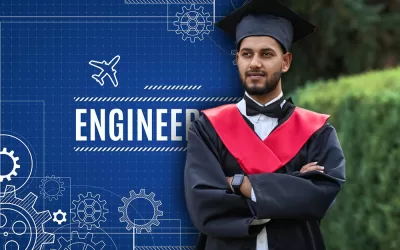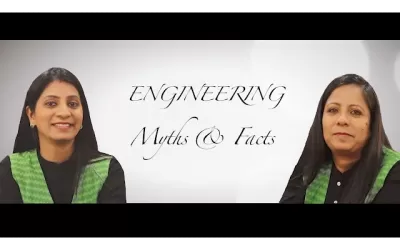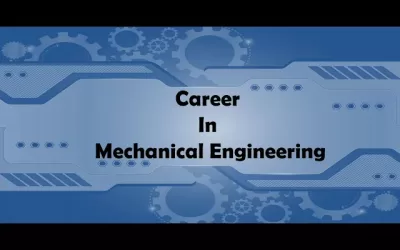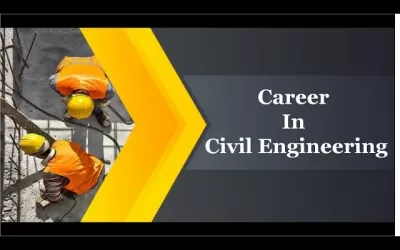What is Mechanical Engineering?
When Can I Enroll for Mechanical Engineering?
COURSE | ELIGIBILITY | DURATION | ENTRANCE EXAM |
Diploma | SSC/ ITI-Lateral entry | 3 Yrs. | |
B.E. / B.Tech. | HSC with PCM | 4 Yrs. | JEE Mains /Autonomous |
Lateral Entry after completing Diploma | 3 Yrs. | No Entrance Exam | |
*AMIE | HSC with PCM /B.Sc. / Diploma Engg. | 4 Yrs. | No Entrance Exam |
M.E. /M.Tech | B.E. / B.Tech. [Mechanical] | 2 Yrs. | GATE |
Ph.D | M.E. / M. Tech. [in related field] | 3-5 Yrs. | JEST |
*AMIE: Associate Membership of Institution of Engineers
NOTE: Candidates can get Direct Entry in 2nd Year of B.E / B. Tech [Mechanical] after Diploma in related field.
What Personality Traits are Required to Become Mechanical Engineer?
- Alert Mindset
- Creative Thinking
- Excellent Communication Skills
- Good in Technical Drawings
- Patience
- Perseverance
- Problem Solving Skill
What Aptitude Is Required to Become an Accountant?
- High Abstract Reasoning
- Above Average Numerical Ability
- Above Average Mechanical Reasoning
- High Psychomotor Ability
- High Closure Ability
IQ Required to Become Mechanical Engineer?
Job Prospects for Mechanical Engineer
- Automobile Industry
- Oil Exploration & Refining Industries
- Power Plants
- Technical Wings of Armed Forces
- Space Research Organization
Regulatory Body
Technical Education (DTE)
Frequently Asked Question for Mechanical Engineering
1. What is mechanical engineering, and what do mechanical engineers do?
Mechanical engineering is a branch of engineering that deals with the design, analysis, manufacturing, and maintenance of mechanical systems. Mechanical engineers work on a wide range of projects, including designing machines, engines, HVAC systems, and more.
2. What are the key areas or subfields within mechanical engineering?
Subfields of mechanical engineering include thermodynamics, robotics, materials science, automotive engineering, aerospace engineering, and HVAC (heating, ventilation, and air conditioning) systems.
3. What skills are essential for a successful career in mechanical engineering?
Key skills for mechanical engineers include problem-solving, critical thinking, computer-aided design (CAD), project management, and strong analytical and mathematical abilities.
4. What is the educational path to becoming a mechanical engineer?
Becoming a mechanical engineer typically requires a bachelor’s degree in mechanical engineering or a related field. Some positions, especially research or academic roles, may require a master’s or doctoral degree.
5. What are the common job opportunities for mechanical engineers?
Mechanical engineers can work in various industries, including manufacturing, automotive, aerospace, energy, and robotics. Common job titles include mechanical design engineer, manufacturing engineer, quality engineer, and project manager.
6. How do mechanical engineers contribute to sustainability and environmental efforts?
Mechanical engineers contribute to sustainability by designing energy-efficient systems, renewable energy technologies, and environmentally friendly manufacturing processes.
7. What are the latest trends and technologies in mechanical engineering?
Emerging trends in mechanical engineering include additive manufacturing (3D printing), automation and robotics, smart materials, and advancements in renewable energy systems.
8. Are internships or co-op experiences important for mechanical engineering students?
Yes, internships and co-op experiences are valuable as they provide hands-on experience and help students apply their classroom knowledge to real-world engineering projects.
9. What certifications or licenses are required for mechanical engineers?
The requirements for certifications or licenses can vary by location and specific job responsibilities. Some mechanical engineers pursue a Professional Engineer (PE) license, which may be required for certain positions.
10. How can I stay updated on the latest developments in mechanical engineering?
Staying updated involves reading industry publications, attending conferences and workshops, participating in online forums, and joining professional organizations such as the American Society of Mechanical Engineers (ASME).
11. What are the ethical considerations in mechanical engineering, particularly related to safety and sustainability?
Mechanical engineers must prioritize safety in design and manufacturing processes, adhere to ethical standards, and consider the environmental impact of their projects.
12. How does mechanical engineering contribute to innovation and technological advancements?
Mechanical engineering innovations have led to advancements in transportation, medical devices, consumer electronics, and countless other areas, improving efficiency and quality of life.






